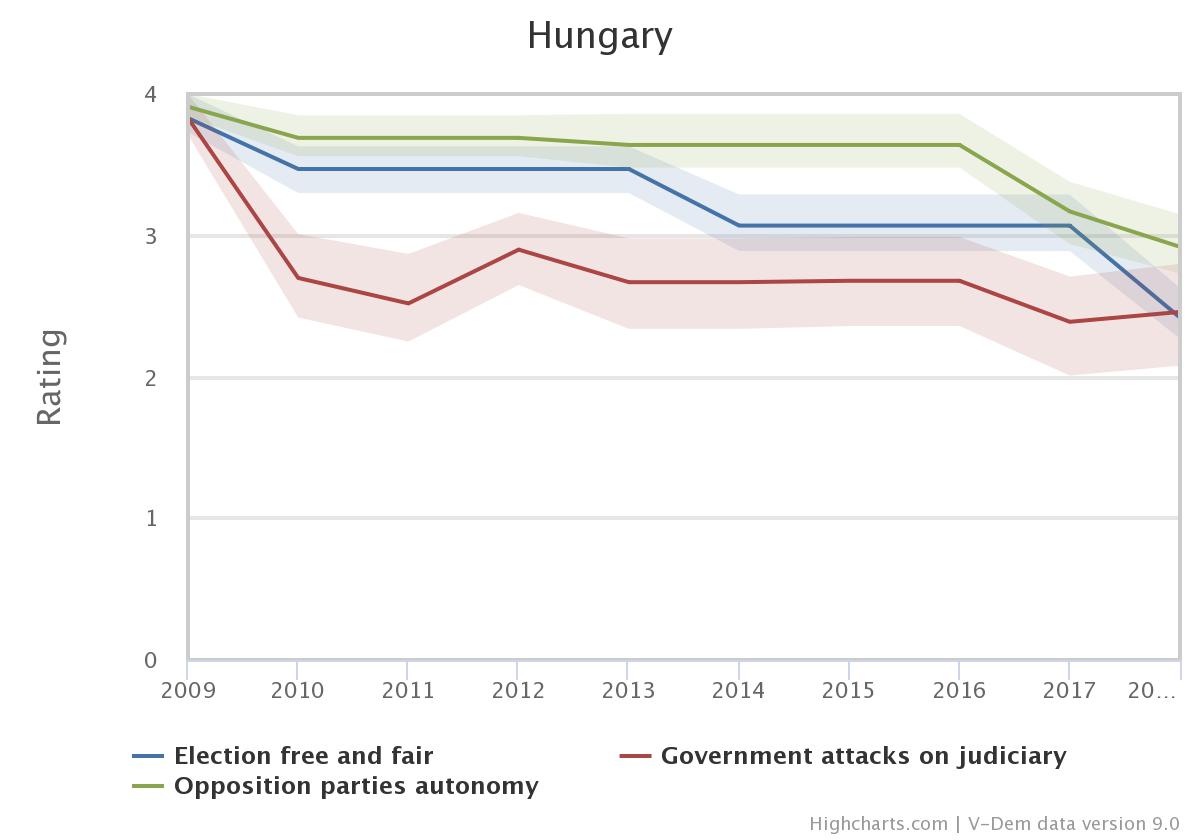Democratic Declines in Hungary
By: V-Dem Staff
Jun 07, 2019
Hungary’s democracy has been declining and its autocratic characteristics increasing since Viktor Orban came into power in 2010. Orban has been heavily criticized by the European Union for dismantling the country’s democratic institutions and extending control over its independent institutions. Orban’s actions have led to restrictions in Hungary’s judiciary. Judges opposing the regime have been forced out and replaced with judges loyal to Orban and Fidesz. At the same time, opposition parties’ ability to challenge the regime have been hindered by Fidesz’s increased control of the media. The regime’s control of state resources has also starved opposition parties of campaigning opportunities. Finally, Orban has used unfair elections to establish himself in office and consolidate his political power. Consequently, the European Parliament suspended Orban’s party, Fidesz, in March.
V-Dem’s Country Graph tool can be used to illustrate the changes in the fairness and freedom of elections, opposition party autonomy and government attacks on the judiciary since 2009. After Orban took office in 2010, we observe declines in all three indicators. The first indicator looks at how free and fair elections are. It is measured from 0 to 4, with 0 indicating that elections are fundamentally flawed, and 4 elections are free and fair. Opposition party’s autonomy reflects whether opposition parties are independent and autonomous from the ruling elite. It is measured from 0 to 4, with 0 indicating that there are no autonomous opposition parties, and 4 that opposition parties are autonomous and independent. Government attacks on judiciary looks at how often governments have publicly attacked the judiciary’s integrity. It is measured from 0 to 4, with 0 indicating that attacks are carried out frequently, and 4 no attacks on judiciary’s integrity has taken place.


